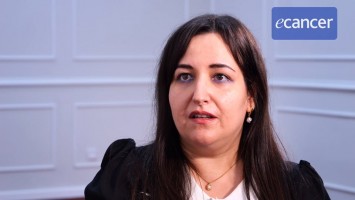The impetus for the study is recognising… you know there’s growing recognition of the epidemic of early-onset colorectal cancer, so by early-onset, we’re defining that as patients who are diagnosed before the age of 50. There’s data from the US that has really supported that there is increasing incidence of early-onset colorectal cancer. We now know unfortunately this is also happening around the world in low- and middle-income countries as well. So the impetus here is really trying to understand some of the determinants of this epidemic and to understand the survival experience of patients with early-onset colorectal cancer.
To date, there have been studies particularly interested in the social determinants of health that might underlie the increase in early-onset colorectal, but many of these studies have been relatively small, limited to single centres or to certain limited geographical areas. Our goal here was to really leverage real world evidence from a large, comprehensive cancer network in a community oncology setting to begin to understand how early-onset patients differ from average onset patients which respect to clinical factors and social determinants of health. We also sought to describe the overall survival experience of patients with early-onset colorectal cancer, again, comparing to average onset, and through a social determinants lens.
What was the methodology and what did you find?
This was an observational cohort study, leveraging real world data, so we included all patients with colorectal cancer over age 18 who were treated in the US oncology network, as well as non-network practices that used the same EHR. That allowed us to have the same information capture across all of the patients included. We essentially devised…
What are the implications of these findings?
This was one of the largest studies of early-onset colorectal cancer to date. Our study featured over 100,000 patients with colorectal cancer and almost 15,000 patients with early-onset colorectal cancer.
One of the first findings we had is that patients with early-onset colorectal cancer had an overrepresentation of certain race and ethnicities, so for example the early-onset patients were more likely to be of Black race, Asian, Alaskan Native and American Indian, as compared to the average onset patients. Also higher proportions of Hispanic and Latino ethnicity.
We also found something very concerning for the early-onset patients as compared to the average onset patients with respect to stage of initial diagnosis. The early-onset patients were more likely to be diagnosed at stage IV and stage III disease as compared to average onset. There was almost a ten percentage point difference in that proportion who were presenting at stage III or IV at initial diagnosis. This is very concerning, because stage of disease is one of the most significant predictors of overall survival, so these patients who are experiencing early-onset disease are also facing worse prognostic outcomes for them.
In terms of some of the implications for this work, I think this has generated a lot of dialogue about screening for colorectal cancer in the United States. Currently the threshold for population-based colorectal cancer screening is age 45, however over half of our patients were actually under the age of 45, the early-onset patients were below the age of 45. We had a median age of 44 in our study, which suggests that about half of those early-onset patients are not helped by the current screening guidelines in the United States. So that should motivate us to think really strategically about how to improve screening for this disease for our younger patients.
There are interesting tools that we could think through. There are risk-based algorithms that could support screening of certain young patients who have a particularly high risk. Our study indicated that obesity, perhaps other metabolic factors, and patient race and ethnicity are associated with the burden of early-onset colorectal cancer. They could be part of the material for developing an algorithm to triage certain younger patients for colorectal cancer screening. I also spoke with an oncologist who was quite passionate about our presentation yesterday and said that we critically need to assume that young patients who are presenting to general practitioners with symptoms indicative of potential cancer need to be presumed to have cancer. The threshold for referring to colonoscopy needs to be much lower.
We know from external data there are much greater diagnostic delays for the early-onset patients so the time from first symptom to definitive diagnosis is up to six months, eight months, longer for younger patients rather than average onset patients. Lowering the clinical threshold to refer to colonoscopy, referring faster to colonoscopy, also some of the non-invasive or less invasive colorectal cancer screening modalities – the home tests, the stool-based tests – could also be a particularly useful tool in this younger population.








